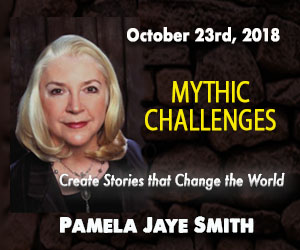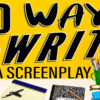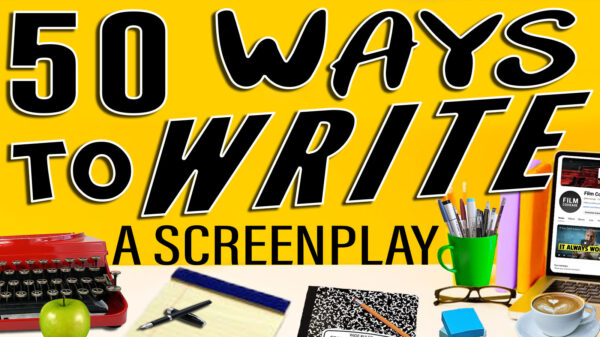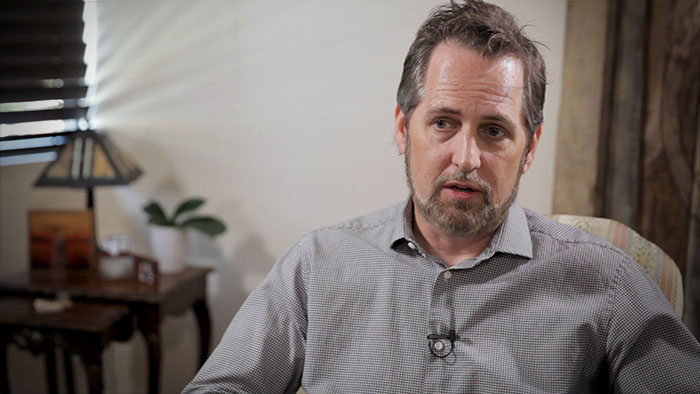
Watch the video interview on Youtube here
Film Courage: When a writer brings their work to you or even when hearing from agents who have had a writer bring work to them, what telltale signs appear when [the work is] so deeply personal and you can tell that this writer doesn’t have enough perspective?
Erik Bork, Screenwriter/Author: I don’t know if there are telltale signs because you never know when you’re reading something is this the author’s own life story? I mean you can suspect it but I would say the absence of some of the elements we’re talking about (the seven elements of what the problem) the absence of those is the main thing that a reader is noticing. That it isn’t that entertaining to watch or the stakes aren’t life-altering (it doesn’t seem like). Or the character isn’t relatable, the problem isn’t punishing enough or what is going on isn’t believable enough. Those kind of things are what we’re just noticing right away. Once we notice them we may speculate Oh this is because it’s their own true story and their own life doesn’t have those elements but we don’t really know for sure.
So I don’t really know if I can say I can tell this is a true-person personal story unless I really know the writer and it’s pretty obvious that it’s their life. It’s more the absence of some of those elements not appearing as strongly as we would want makes us less enthused about the script. And it may or may not be because it was a personal story like that.

Check out Erik’s book on Amazon here
Film Courage: Do you remember the first feedback you received from a third party that these elements needed to be more pronounced?
Erik: Oh yeah.
Film Courage: How was that for you?
Erik: Devastating, terrible. The worst moment in my life up to that point. So I guess I’ve had a pretty good life if the worst moment in my life is having someone tear apart a script. But some of the early scripts that I wrote I would probably cringe at now and the stuff I write now I’ll probably cringe at 6 months from now. It’s not an easy field is what I’m saying. You won’t always have perspective on what you’re writing yourself and whether others are going to respond well to it.
But I’ve had people say that there is just not enough conflict (it needs more conflict) and I in my early days I thought conflict meant like people arguing, fighting or car chases. I didn’t really know what that meant exactly and so I didn’t write scripts and I didn’t write movies that people constantly arguing or fighting or car chasing. So I thought I was writing something that was the kind of stuff I would like. But a third party reading it said you know you did some good things hear I just thought it needed more conflict. I didn’t really know what they meant. Now after doing it for years and reading a lot of scripts, I know what they meant. To me conflict is synonymous with problem.
So it’s not that your character has to always been in obvious conflict with people and expressing and fighting. It’s that they have to be in conflict with their situation and they have to have problems. Whenever your character doesn’t have a problem or isn’t even actively struggling against or trying to resolve a problem, the audience tends to check out a bit, right? So that usually leads to conflict with other characters trying to solve a problem in life, generally leads to some interpersonal conflict. Because a lot of problems that are big enough for a movie that we want to solve, big enough for a TV show, are problems that all involve relations and interactions with other people. So there will be conflict, but it’s not that limited version of what I thought conflict…(Watch the video interview on Youtube here).
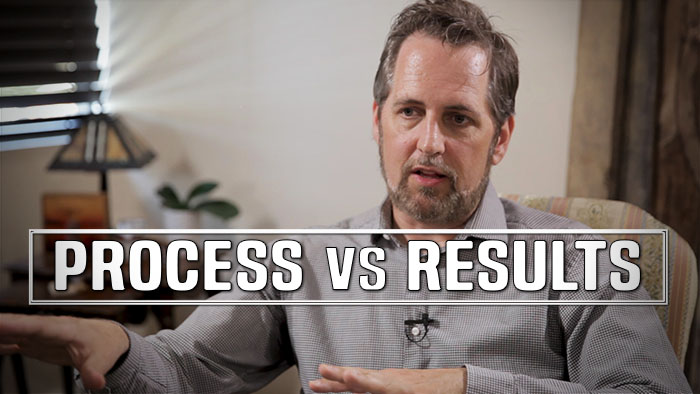

Like this video? Please subscribe to our Youtube channel. Or love this video and want more? You can show additional support via our Youtube sponsor tab (hit the JOIN button on the front page of our Youtube channel in the upper right hand corner or underneath any video if watching on Youtube) or through Patreon.
Advertisement – contains affiliate links:
Lights, Camera, Save! is a teen video contest that encourages teens to educate themselves and their peers about the value of saving and using money wisely. Each fall students enter the contest by submitting videos to local participating banks. These banks then choose a local winning video and submit it for judging at the national level. No purchase necessary. Void where prohibited.
Is your story issue-oriented? Do you want to raise awareness and motivate your audience to action? Put yourself ahead of the curve-of-change with the story tools in this seminar.
Please join us for a 2-hour speaker series (that will include Q&A) with mythologist, author, international consultant-speaker, and award-winning writer-producer-director Pamela Jaye Smith where she will help you learn to use the classic story tools of Mythic Themes, Archetypes, and Symbols to give your story global appeal. Here is a video from our recent event with screenwriter/author Mark Sanderson.






